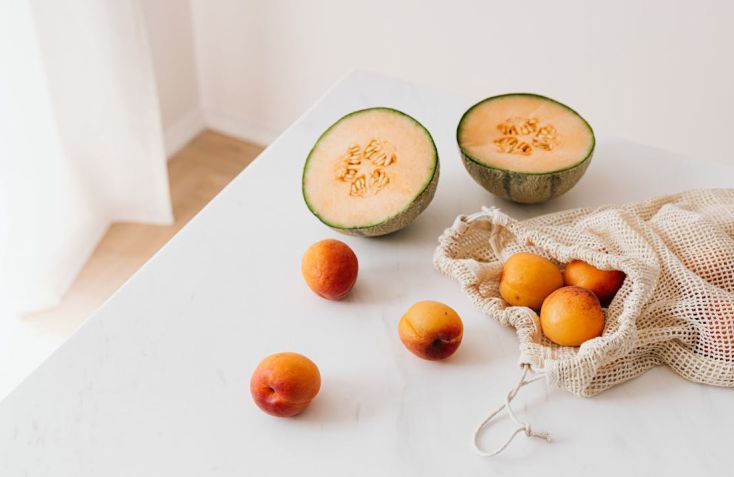In today’s world, embracing sustainable living is more than just a trend—it’s a necessity. With increasing awareness of environmental issues, more people are seeking ways to make their homes eco-friendly. This blog post explores practical and impactful eco-friendly ideas that can transform your home into a haven of sustainable living.
Why Sustainable Living Matters
Living sustainably reduces our carbon footprint and preserves natural resources for future generations. It involves making conscious choices that benefit both the environment and our well-being. Here are some compelling reasons to adopt sustainable practices at home:
- Environmental Protection: Reducing waste, conserving energy, and minimizing pollution help protect ecosystems and biodiversity.
- Health Benefits: Eco-friendly products often contain fewer toxins and chemicals, promoting a healthier living environment.
- Cost Savings: Sustainable living can lower utility bills and maintenance costs through energy efficiency and reduced waste.
Energy Efficiency
Upgrade to Energy-Efficient Appliances
Switching to energy-efficient appliances is one of the easiest ways to reduce energy consumption. Look for products with the ENERGY STAR label, which indicates they meet strict energy efficiency guidelines. Key appliances to consider include:
- Refrigerators: Modern, energy-efficient refrigerators use less electricity, saving both energy and money.
- Washing Machines: High-efficiency washing machines use less water and electricity, making laundry day greener.
- Light Bulbs: LED bulbs consume up to 80% less energy than traditional incandescent bulbs and last longer.
- Install Smart Thermostats: Smart thermostats optimize heating and cooling systems by learning your schedule and adjusting temperatures accordingly. They can be controlled remotely via smartphone apps, ensuring your home is always at the optimal temperature without wasting energy.
- Utilize Renewable Energy: Consider installing solar panels to harness renewable energy. Solar power reduces reliance on fossil fuels and can significantly lower electricity bills. Many governments offer incentives for solar panel installations, making it a cost-effective investment.
Water Conservation
- Install Low-Flow Fixtures: Low-flow faucets, showerheads, and toilets reduce water usage without compromising performance. These fixtures are easy to install and can save thousands of gallons of water annually.
- Rainwater Harvesting: Collecting rainwater for irrigation and other non-potable uses is an excellent way to conserve water. A rain barrel system captures runoff from your roof, providing free water for your garden and reducing demand on municipal water supplies.
- Invest in a Waterdrop Water Filter: Installing a water filter not only ensures the safety of your family’s drinking water, but also improves the utilization of water resources. With it, the demand for bottled water in life can be greatly reduced, thus reducing plastic waste and thus promoting sustainable development and environmental protection.
Sustainable Materials and Products
- Choose Eco-Friendly Building Materials: When renovating or building, opt for sustainable materials such as bamboo, reclaimed wood, and recycled metal. These materials are durable, renewable, and have less environmental impact than traditional options.
- Use Non-Toxic Paints and Finishes: Conventional paints and finishes often contain volatile organic compounds (VOCs) that can harm indoor air quality. Eco-friendly paints are low in VOCs and other harmful chemicals, making them safer for your home and the environment. If you want to enhance your home’s ambiance while ensuring safety, consider learning about different aspects of entertainment that can be enjoyed indoors. For instance, read more about TV casino games, which offer a convenient and exciting way to experience the thrill of a casino from the comfort of your home.
Waste Reduction
- Composting: Composting organic waste like food scraps and yard clippings reduces landfill waste and creates nutrient-rich soil for your garden. A compost bin is easy to set up and maintain, providing a sustainable way to recycle organic matter.
- Reduce, Reuse, Recycle: Implementing the three Rs—reduce, reuse, recycle—helps minimize waste. Reduce consumption by choosing products with minimal packaging, reuse items when possible, and recycle materials like paper, plastic, and glass.
Indoor Air Quality
- Houseplants for Clean Air: Houseplants not only enhance the aesthetic of your home but also improve indoor air quality. Plants like spider plants, peace lilies, and snake plants are particularly effective at filtering toxins from the air.
- Air Purifiers: Investing in an air purifier with a HEPA filter can significantly improve indoor air quality by removing pollutants, allergens, and other harmful particles.
Sustainable Living Tips for Daily Life

- Reduce Single-Use Plastics: Avoid single-use plastics by choosing reusable alternatives. Bring your own shopping bags, use stainless steel or glass water bottles, and opt for reusable straws and cutlery.
- Opt for Natural Cleaning Products: Conventional cleaning products contain harsh chemicals that can be harmful to both health and the environment. Choose eco-friendly cleaning products made from natural ingredients, or make your own using vinegar, baking soda, and essential oils.
- Embrace Minimalism: Adopting a minimalist lifestyle can reduce clutter and consumption. Focus on quality over quantity, and only purchase items that you truly need and will use.
- Support Local Businesses: Buying locally-produced goods reduces transportation emissions and supports the local economy. Visit farmers’ markets, buy from local artisans, and choose locally-owned stores whenever possible.
- Join a Community Garden: Community gardens are a great way to grow your own food, reduce food miles, and connect with your neighbors. If your community doesn’t have one, consider starting a garden project to promote sustainability and social interaction.
Conclusion
Sustainable living is an ongoing journey that starts with small, conscious changes. By adopting these eco-friendly ideas, you can create a home that is not only better for the environment but also healthier and more cost-effective. Every effort counts, and together, we can make a significant impact on the planet. Embrace sustainable living today and inspire others to do the same. Let’s work towards a greener, more sustainable future for all.
Source link
ecoideaz www.ecoideaz.com

